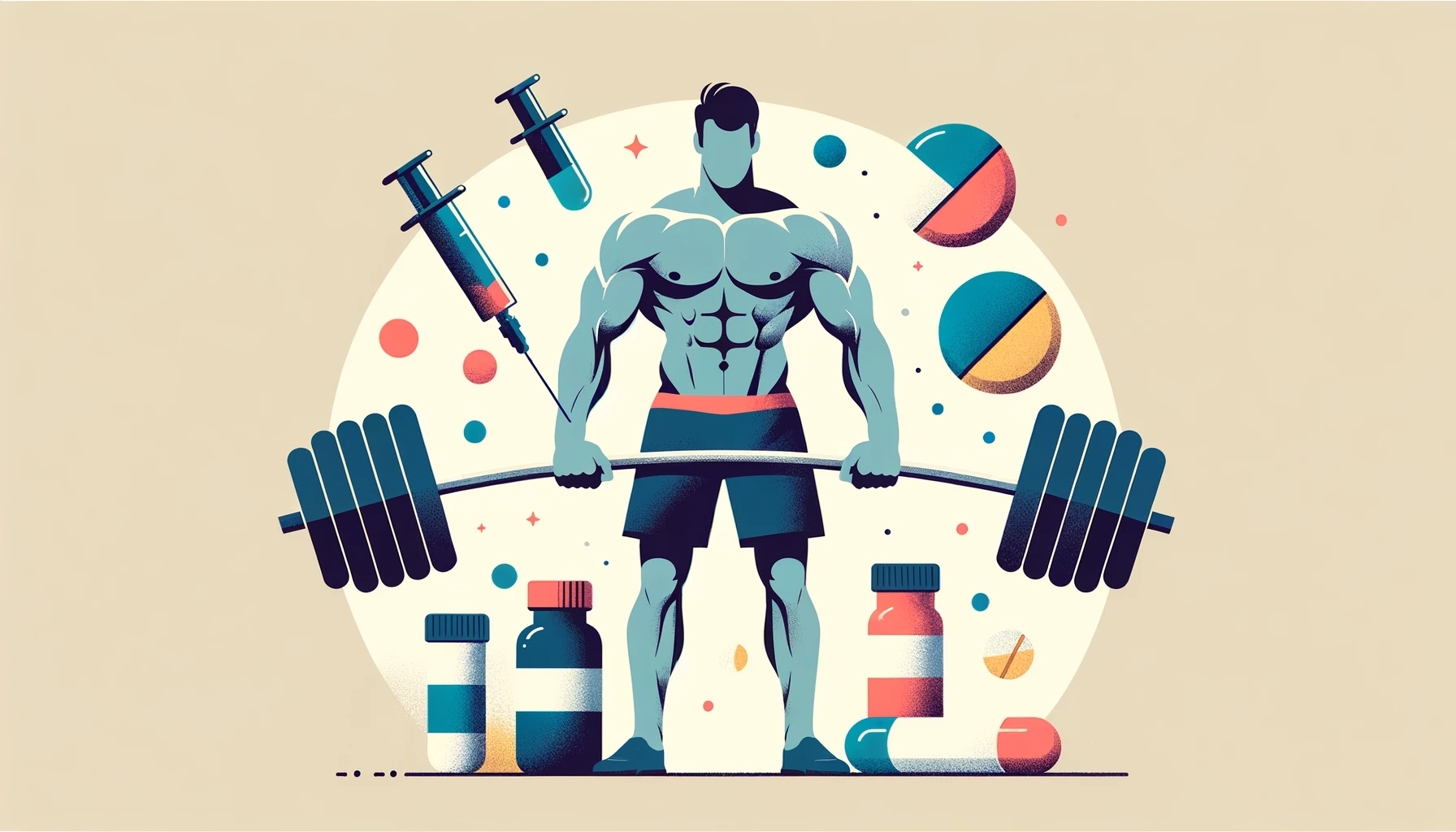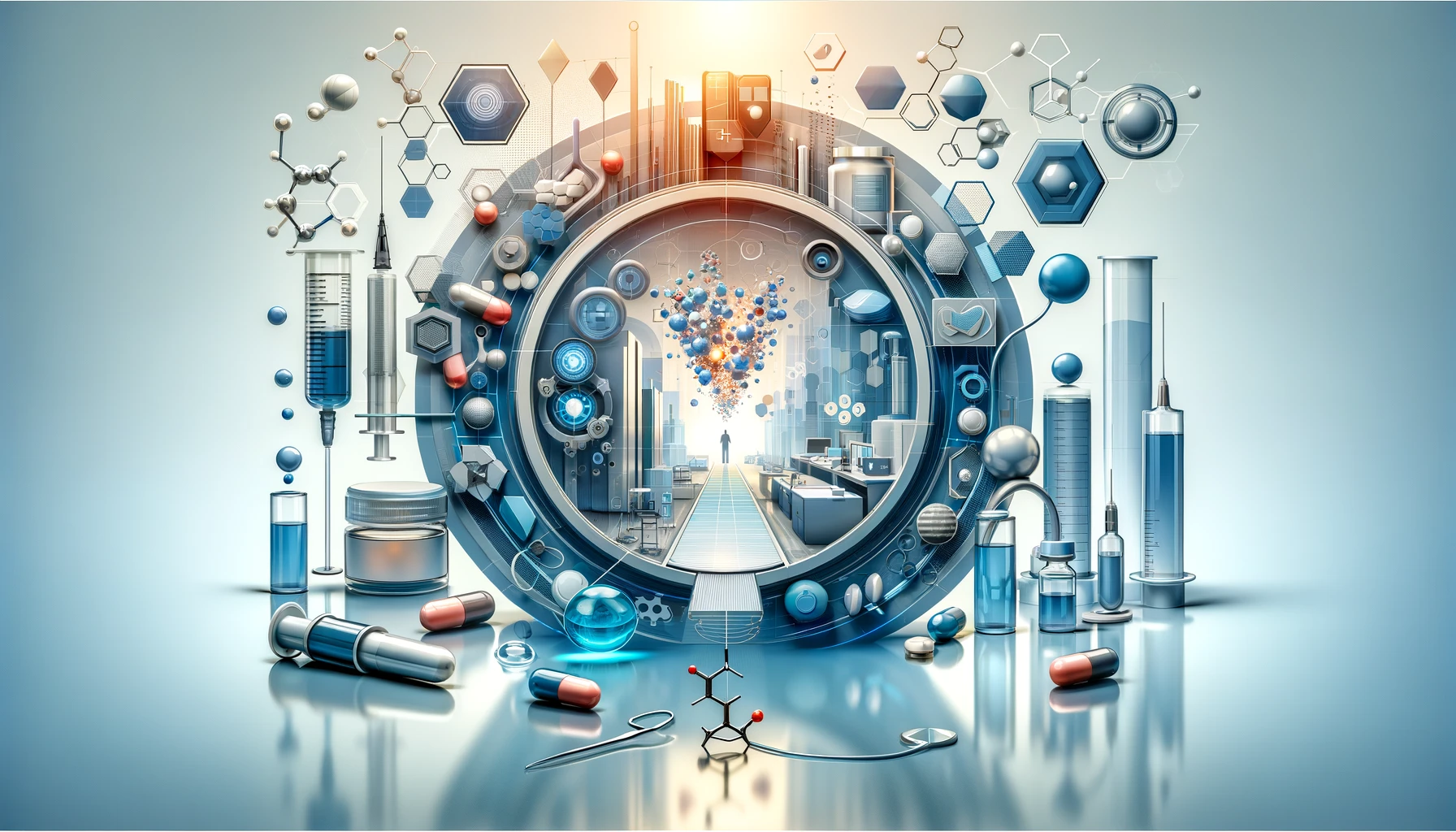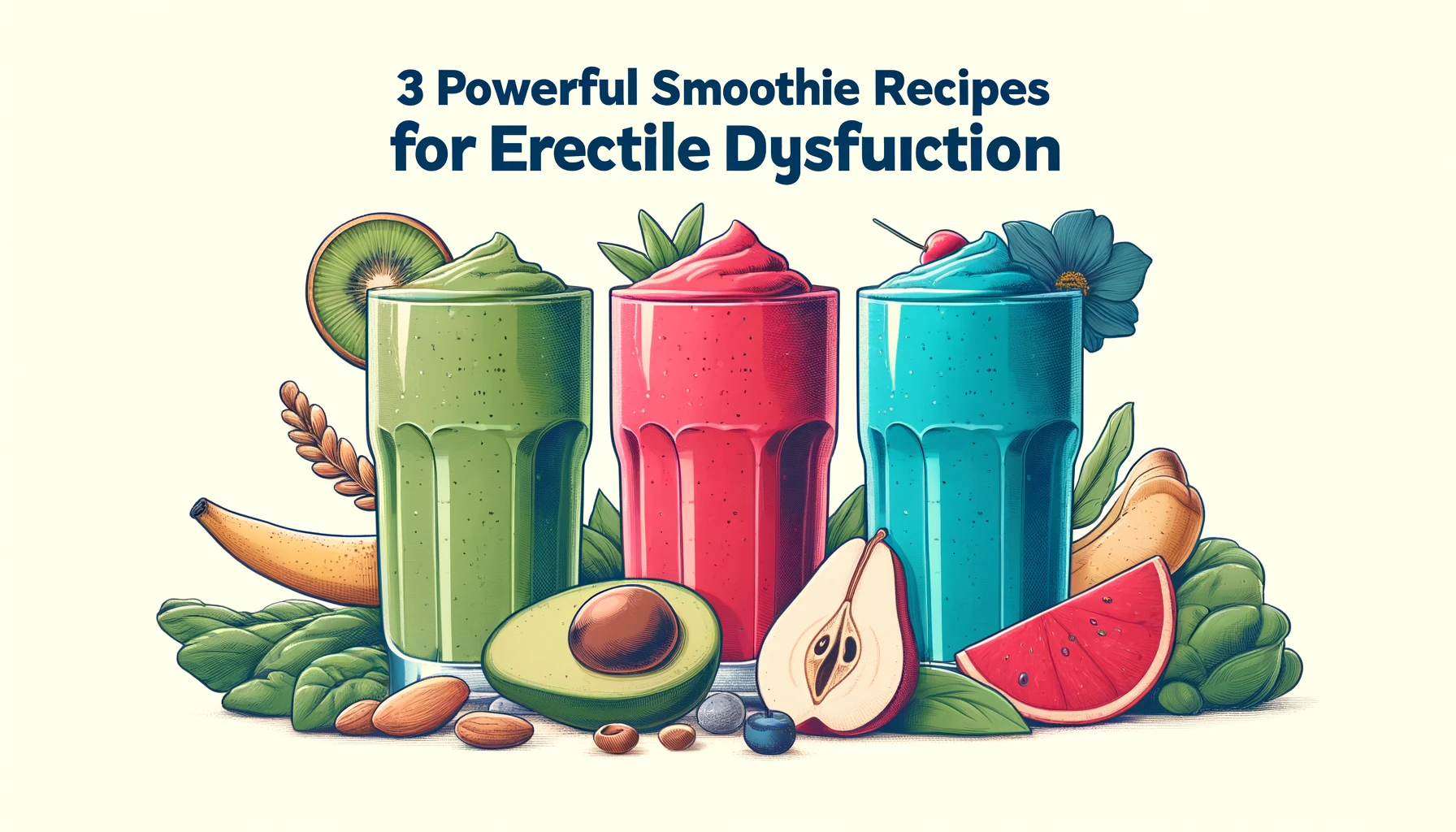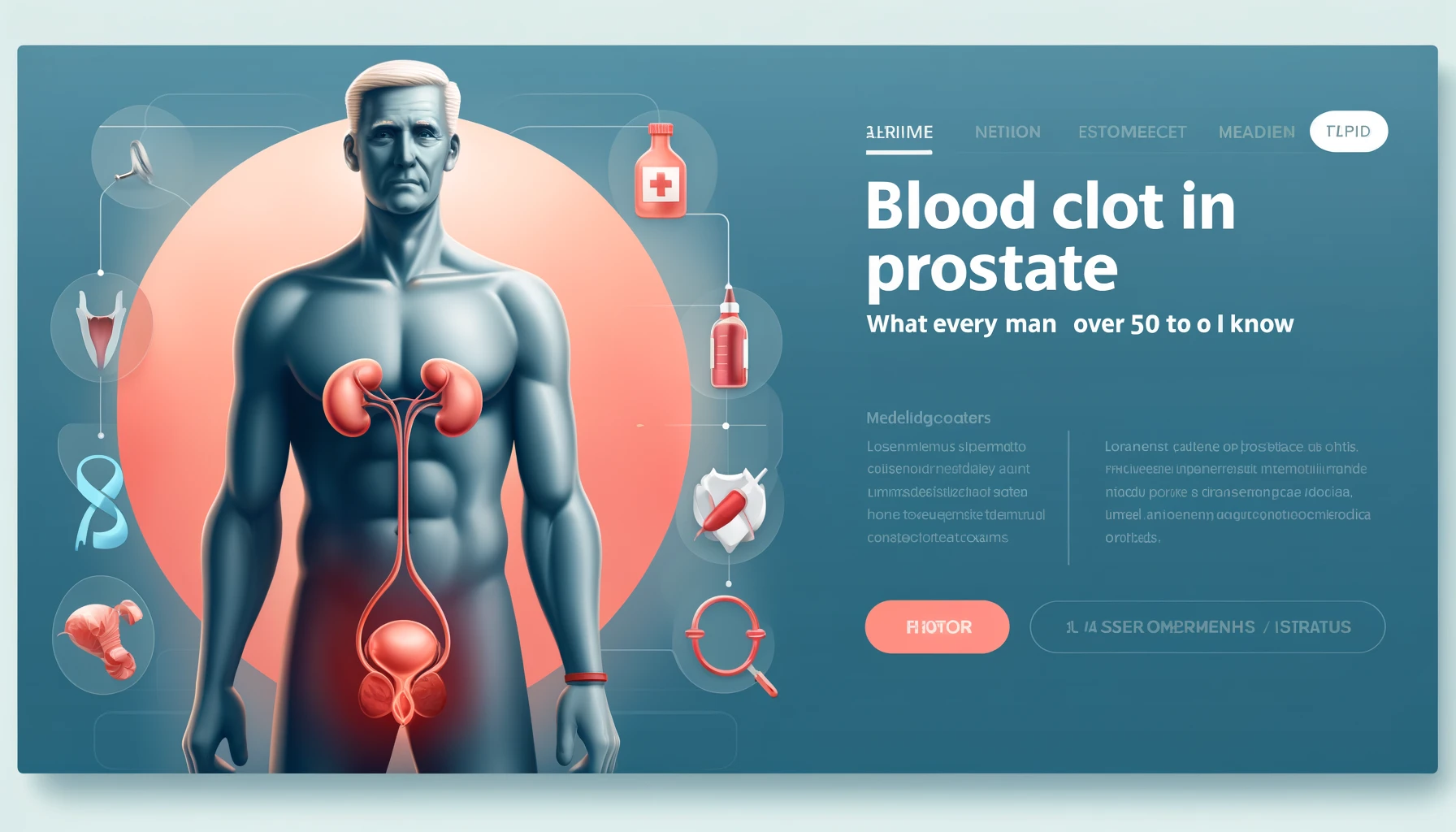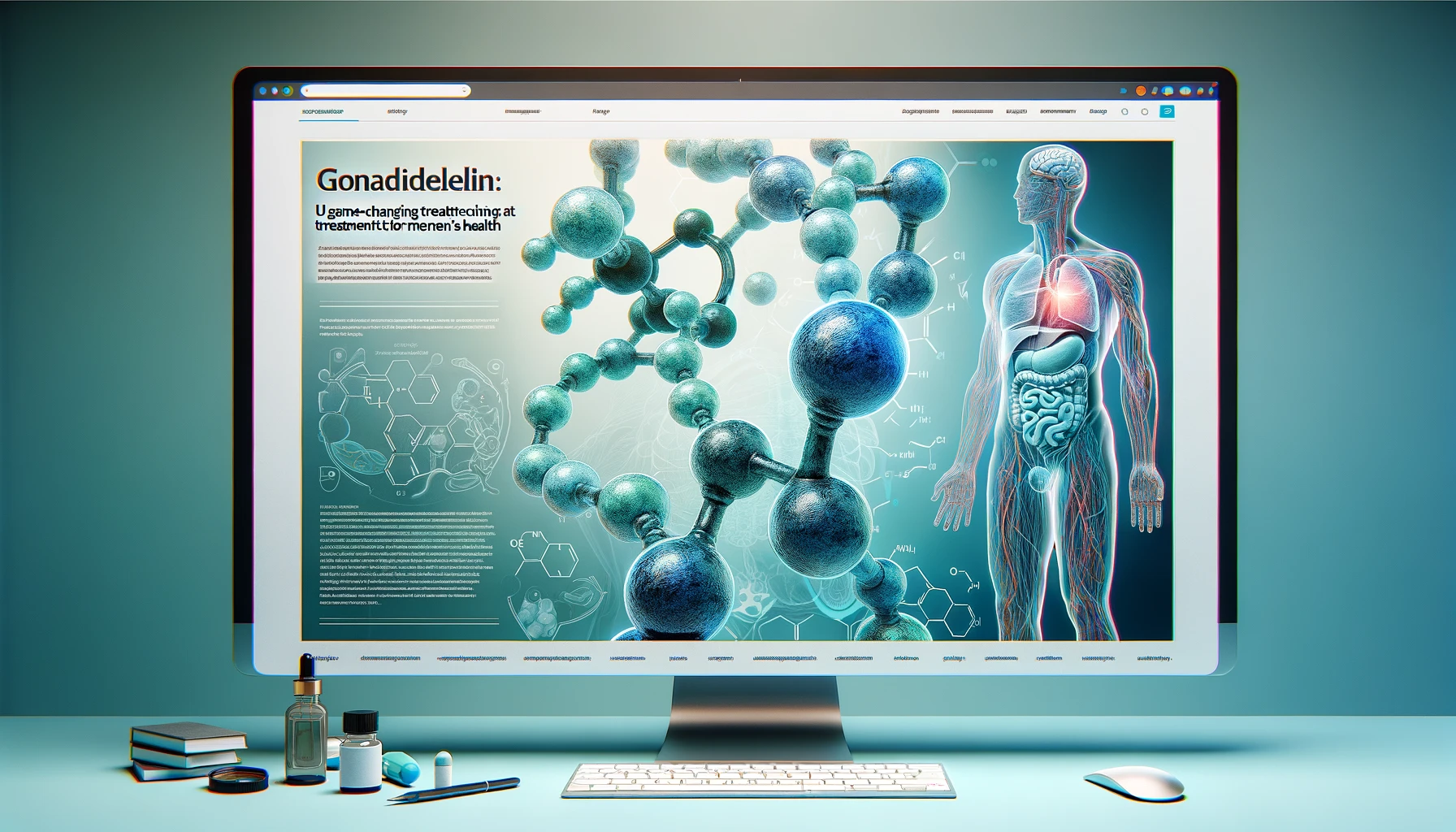how to avoid erectile dysfunction on steroids
In the ever-evolving landscape of fitness and bodybuilding, the allure of steroids as a means to achieve rapid muscle growth and enhanced physical performance is undeniable. For many individuals, these synthetic compounds represent a shortcut to achieving their ideal physique. However, lurking in the shadows of the pursuit of physical perfection is a potential pitfall that often remains overlooked – the risk of developing erectile dysfunction (ED).
Erectile dysfunction, often referred to as impotence, is a condition that affects a man’s ability to achieve or sustain an erection suitable for sexual activity. While it is a topic often shrouded in stigma and discomfort, it is crucial to address the potential link between steroid use and ED openly and informatively.
In this comprehensive guide, we will embark on a journey to demystify the intricate relationship between steroids and erectile dysfunction. We will explore the underlying mechanisms that connect the two, providing you with a clear understanding of how and why this risk exists. More importantly, we will equip you with a toolkit of knowledge and strategies to help you navigate the world of steroids with caution, ensuring that your pursuit of physical excellence does not come at the cost of your sexual health.
So, if you are considering or currently using steroids as part of your fitness regimen, or if you are simply curious about the potential risks involved, join us as we unravel the complexities of how to avoid erectile dysfunction on steroids, ensuring that your path to fitness is both safe and informed.
Contents
What are Steroids?
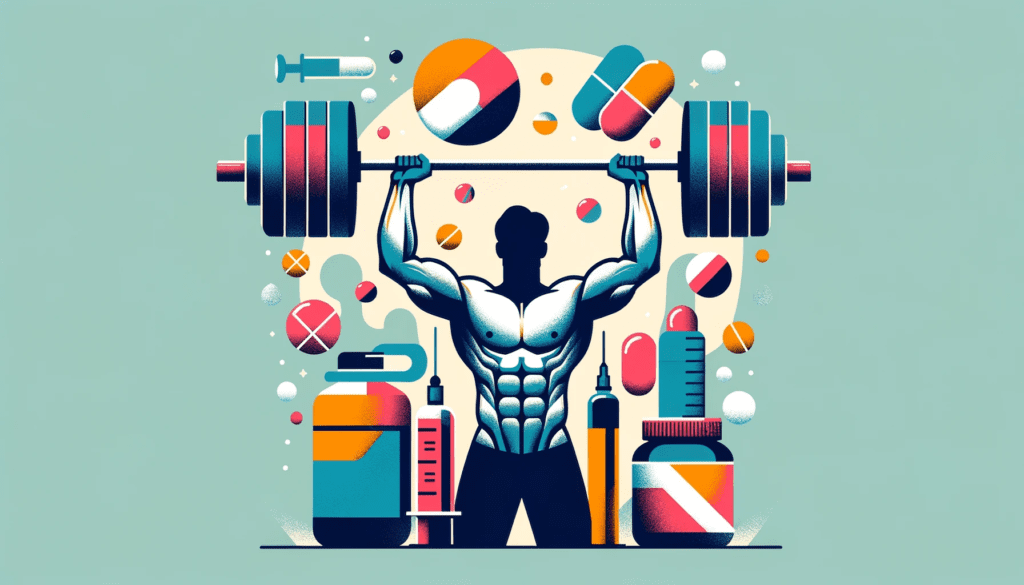
Steroids, in the context of bodybuilding and sports performance enhancement, refer to anabolic steroids. Anabolic steroids are synthetic versions of the hormone testosterone, which is naturally produced in the human body. Testosterone plays a crucial role in various physiological processes, including:
- Muscle Growth: Testosterone is responsible for promoting muscle protein synthesis, making it a key factor in the development and maintenance of muscle mass.
- Bone Density: It helps maintain bone density and strength.
- Red Blood Cell Production: Testosterone stimulates the production of red blood cells, which are essential for oxygen transport in the body.
- Libido and Sexual Function: Testosterone influences libido and sexual function in both men and women.
- Secondary Sexual Characteristics: Testosterone is responsible for the development of secondary sexual characteristics in males, such as facial hair, deepening of the voice, and the growth of the Adam’s apple.
Medical Uses of Steroids
In the medical field, steroids have legitimate uses. They are often prescribed to treat conditions such as:
- Hormone Imbalances: Steroids can be used to replace or supplement hormones in cases of deficiency, such as testosterone replacement therapy for men with low testosterone levels.
- Inflammatory Conditions: Steroids have potent anti-inflammatory properties and are used to treat various inflammatory conditions, including arthritis, asthma, and skin disorders like eczema.
- Autoimmune Diseases: Steroids can suppress the immune system’s response, making them valuable in the treatment of autoimmune diseases like lupus and rheumatoid arthritis.
Anabolic Steroids in Sports and Bodybuilding
In the realm of sports and bodybuilding, anabolic steroids are sometimes used illegally to enhance physical performance and muscle growth. Athletes and bodybuilders may misuse these substances to gain a competitive edge or achieve rapid muscle gains beyond what is naturally attainable.
However, it’s important to note that the misuse of anabolic steroids can have significant health risks and side effects, including liver damage, cardiovascular issues, hormonal imbalances, and psychiatric effects. Prolonged or excessive use of these substances can lead to serious health complications.
Legal Status
The legality of anabolic steroids varies from country to country. In many places, they are classified as controlled substances, and their use without a prescription is illegal. In contrast, some countries allow their use for specific medical conditions under the supervision of a healthcare provider.
The Link Between Steroids and Erectile Dysfunction
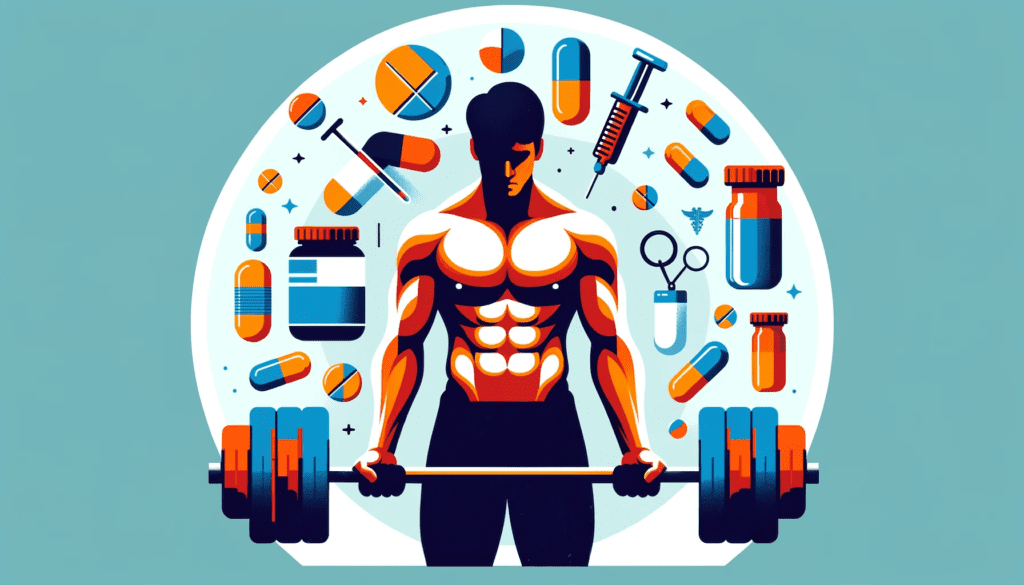
Understanding the Mechanism
The connection between steroid use and ED lies in the intricate hormonal balance within the body. When individuals introduce synthetic steroids into their system, the body reacts in several ways:
- Testosterone Overproduction
Steroids are designed to mimic the effects of testosterone, the primary male sex hormone. When you take steroids, your body receives an influx of synthetic testosterone. This can lead to a surplus of testosterone in your system.
- Suppression of Gonadotropin-Releasing Hormone (GnRH)
As your body detects an excess of testosterone, it tends to suppress the production of GnRH, a hormone responsible for signaling the release of natural testosterone. This suppression can disrupt the body’s ability to maintain a healthy hormonal balance.
- Estrogen Imbalance
Steroids can also influence the body’s estrogen levels. As testosterone levels increase, the body may attempt to counterbalance by converting excess testosterone into estrogen. This hormonal shift can further complicate the situation.
The Impact of Hormonal Imbalance on Erectile Function
The disruption of hormonal balance caused by steroids can have a direct impact on erectile function:
- Reduced Libido
An imbalance in testosterone and estrogen levels can lead to a decreased sex drive, making it more challenging to become aroused.
- Weakened Erections
Excessive use of steroids can lead to weakened or less sustainable erections. This is primarily due to the hormonal fluctuations interfering with the body’s ability to respond to sexual stimulation.
- Difficulty in Sustaining Erections
Some individuals using steroids may experience difficulties in maintaining an erection throughout sexual activity. This can be distressing and frustrating.
- Psychological Factors
In addition to the physiological effects, there are psychological factors at play. The stress and anxiety associated with the fear of ED can contribute to performance issues, creating a self-fulfilling prophecy.
Long-Term Implications
It’s essential to recognize that the link between steroids and ED isn’t limited to the period of steroid use. In some cases, the hormonal imbalances triggered by steroids can have lasting effects, even after discontinuing their use. This highlights the importance of responsible steroid use and post-cycle therapy (PCT) to restore hormonal balance.
Tips to Avoid Erectile Dysfunction on Steroids
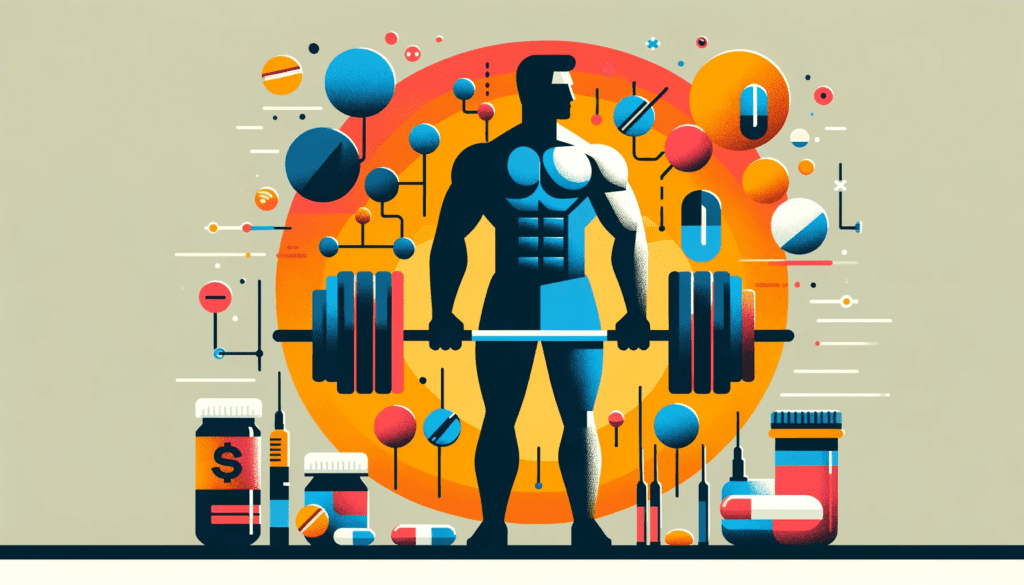
Consult a Healthcare Professional
Before embarking on a steroid cycle, it is essential to consult a healthcare professional, preferably one with expertise in sports medicine or endocrinology. They can assess your overall health, including your cardiovascular and hormonal profiles, and provide personalized guidance regarding the suitability of steroid use in your case. This initial consultation is crucial in determining whether you have any underlying health conditions that could increase the risk of ED.
Use Steroids Responsibly
If you decide to proceed with steroid use, responsible usage is paramount. Follow these guidelines:
- Stick to Recommended Dosages: Never exceed recommended dosages, as higher doses can increase the risk of side effects, including ED.
- Adhere to Cycles: Use steroids in cycles with adequate breaks in between to allow your body to recover its hormonal balance. Avoid prolonged or continuous use, as it can disrupt your natural hormone production.
- Avoid “Stacking”: Refrain from combining multiple types of steroids or using excessive combinations, as this can lead to unpredictable hormonal imbalances.
Monitor Hormone Levels
Regularly monitoring your hormone levels, including testosterone, throughout your steroid cycle is essential. This can help detect any imbalances or irregularities early on, enabling you to take corrective action promptly. If you notice hormonal fluctuations, consult your healthcare professional for advice on adjusting your steroid regimen or incorporating hormone replacement therapy if necessary.
Incorporate Post-Cycle Therapy (PCT)
Post-Cycle Therapy is a critical component of responsible steroid use. PCT involves using medications or treatments to help your body restore its natural hormone production after a steroid cycle. This can mitigate the risk of ED and other side effects associated with hormonal imbalances. Work closely with a healthcare provider to design an effective PCT plan tailored to your needs.
Maintain a Healthy Lifestyle
A holistic approach to health can help counteract some of the negative effects of steroids and promote overall well-being:
- Balanced Diet: Consume a diet rich in nutrients, including vitamins, minerals, and antioxidants. Proper nutrition supports overall health and can help mitigate the impact of steroids on sexual function.
- Regular Exercise: Incorporate regular strength training and cardiovascular exercise into your routine. Exercise has been shown to have a positive impact on sexual health and can help offset the side effects of steroids.
- Adequate Sleep: Prioritize quality sleep, as it plays a crucial role in hormone regulation and overall health. Aim for 7-9 hours of restful sleep per night.
- Stress Management: Implement stress-reduction techniques such as meditation, yoga, or mindfulness to manage the anxiety and stress that can be associated with steroid use.
Psychological Support
Don’t underestimate the psychological aspect of sexual function. If you experience performance anxiety, stress, or relationship issues related to steroid use or ED, consider seeking support from a therapist or counselor. Addressing these emotional factors can be instrumental in restoring healthy sexual function.
ALSO READ: Revitalize Your Love Life: The Definitive Guide to Erectile Dysfunction Treatment
Conclusion – How to Avoid Erectile Dysfunction on Steroids
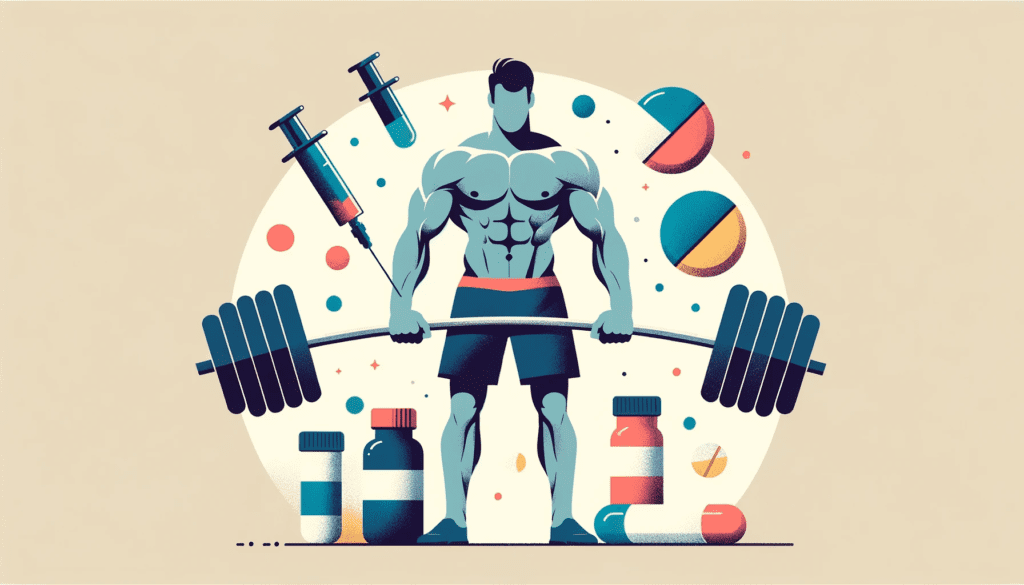
While steroids can provide impressive physical results, the risk of erectile dysfunction is a concerning side effect. It’s crucial to prioritize your health and well-being when considering steroid use.
Consulting with a healthcare professional, using steroids responsibly, and maintaining a healthy lifestyle can go a long way in avoiding ED while on steroids.
how to avoid erectile dysfunction on steroids, how to avoid erectile dysfunction on steroids, how to avoid erectile dysfunction on steroids, how to avoid erectile dysfunction on steroids, how to avoid erectile dysfunction on steroids, how to avoid erectile dysfunction on steroids, how to avoid erectile dysfunction on steroids, how to avoid erectile dysfunction on steroids, how to avoid erectile dysfunction on steroids, how to avoid erectile dysfunction on steroids, how to avoid erectile dysfunction on steroids, how to avoid erectile dysfunction on steroids, how to avoid erectile dysfunction on steroids, how to avoid erectile dysfunction on steroids, how to avoid erectile dysfunction on steroids, how to avoid erectile dysfunction on steroids, how to avoid erectile dysfunction on steroids, how to avoid erectile dysfunction on steroids, how to avoid erectile dysfunction on steroids, how to avoid erectile dysfunction on steroids, how to avoid erectile dysfunction on steroids, how to avoid erectile dysfunction on steroids, how to avoid erectile dysfunction on steroids, how to avoid erectile dysfunction on steroids,
FAQs
-
Can steroids cause permanent erectile dysfunction, and is there any hope for recovery?
While steroids can lead to temporary erectile dysfunction, the good news is that it is usually reversible with the right interventions. Permanent ED is relatively rare in steroid users. With proper post-cycle therapy (PCT), hormone monitoring, and lifestyle adjustments, recovery from steroid-induced ED is possible in most cases.
-
How long does it take for steroids to affect sexual function?
The impact of steroids on sexual function can vary from person to person. Some individuals may notice changes during the steroid cycle, while others may experience ED or other sexual issues after discontinuing steroid use. Factors such as the type of steroid, dosage, and duration of use all play a role in determining when and how steroid-induced ED manifests.
-
Are there alternatives to steroids for achieving muscle growth without the risk of ED?
Yes, there are alternative ways to achieve muscle growth without resorting to steroids. These include proper nutrition, strength training, and the use of natural supplements. Working with a fitness professional or trainer can help you develop a customized workout and nutrition plan to achieve your fitness goals without the potential side effects of steroids.
-
Can I use steroids safely if I follow responsible practices?
Steroids can be used relatively safely under medical supervision and with responsible practices. However, it’s essential to understand that there are always risks involved. Responsible use includes consulting a healthcare professional, adhering to recommended dosages and cycles, monitoring hormone levels, and incorporating post-cycle therapy. Misuse or abuse of steroids can lead to serious health complications, including ED.
-
Is it possible to maintain a healthy sex life while using steroids?
Yes, it is possible to maintain a healthy sex life while using steroids. By following responsible steroid use practices, regularly monitoring hormone levels, and addressing any psychological factors like performance anxiety, you can mitigate the risk of ED and other sexual issues. Additionally, maintaining a balanced lifestyle with proper nutrition, exercise, and stress management can contribute to a satisfying sexual life even while using steroids.
-
What are the common risk factors for developing ED while on steroids?
Common risk factors include excessive steroid doses, long-term use, and pre-existing medical conditions like diabetes or hypertension.
-
Can psychological factors contribute to steroid-induced ED?
Yes, psychological factors such as performance anxiety or stress can play a role in steroid-induced ED. It’s essential to address these factors for a holistic approach to prevention.
-
Are there specific dietary changes that can help prevent steroid-induced ED?
A diet rich in antioxidants, omega-3 fatty acids, and foods that support nitric oxide production can potentially improve sexual health while on steroids.
-
What role does hydration play in preventing ED on steroids?
Proper hydration is crucial for overall health, including sexual health. Dehydration can affect blood flow, which may contribute to ED.
-
Is there a recommended age at which steroid use should be avoided to reduce ED risk?
While age can be a factor, it’s more important to focus on safe steroid use practices and maintaining a healthy lifestyle regardless of age.
-
Can lifestyle changes alone reverse steroid-induced ED, or is medical treatment necessary?
In some cases, lifestyle changes alone may help reverse steroid-induced ED. However, consulting a healthcare professional is advisable to determine the most suitable treatment plan.
-
What is the role of regular check-ups while using steroids in preventing ED?
Regular check-ups can help monitor your health and catch potential issues early. This proactive approach can contribute to preventing ED or addressing it promptly if it arises.
-
Are there specific exercises that can benefit sexual health while on steroids?
Exercises that improve cardiovascular health, such as aerobic exercises and Kegel exercises, can be beneficial for sexual health.
-
Is there a recommended timeline for taking breaks from steroid use to reduce the risk of ED?
Taking breaks or “cycling” steroids may reduce the risk of ED, but it’s essential to consult with a healthcare professional for personalized guidance.
-
Can steroid-induced ED affect fertility?
Yes, steroid-induced ED can potentially impact fertility. It’s crucial to consider this aspect when using steroids, especially if you plan to have children in the future.

